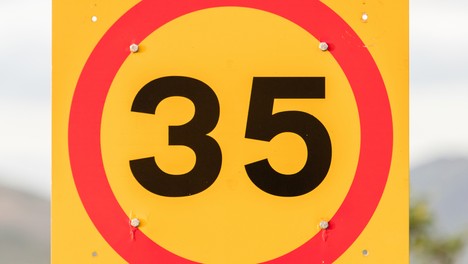You’ll likely spend a lot of time browsing Reykjavik Cars and other rental agencies in search of the right vehicle for your trip. However, you also need to think about the actual driving process. While many Iceland road signs will be similar to what you’re used to, there will be some differences. Being aware of the differences can help you more easily navigate during your self-drive adventure.
Here are some of the primary Iceland road signs you are likely to encounter during your trip:
Regulatory / Speed Control Signs
Speed limits in Iceland are generally indicated on yellow signs with red borders, with just a number. All speed limits in Iceland are expressed in kilometers per hour.

Warning Signs (Yellow With Red Borders)
Road signs that are meant to warn you about certain driving conditions or hazards will be yellow signs with red borders. Some of these signs are triangular, while others may be rectangular. Here are some of the most common:

Prohibitory Signs (Round Yellow With Red Borders)
Some road signs indicate what you are not allowed to do. These signs are recognizable by their round shape and are yellow with red borders, often with a red line diagonally through the circle. Some of the common signs in this category include the following:

Instruction Signs (Blue Circles)
Round blue signs typically indicate instructions showing you what you must do in these areas. These signs include the following:

Informational Signs (Blue)
Square or rectangular blue signs with white writing are generally considered informational signs. These signs tell you important information, including the following:

Route and Direction Signs
Route and direction signs are often square or rectangular and can be in several color combinations. They may be blue with white writing, white with blue writing, white with red writing, or yellow with black writing. These signs often include names of places, distances to those places, and which direction you should turn to reach those locations.

Service Signs (Blue Squares)
The other Iceland road signs on this list are essential to help you drive safely during your visit, but these aren’t the only signs you will encounter along the road. There are a number of service-related signs that can help you find what you’re looking for. The following are some of the most common ones you may encounter:

Are You Ready to Hit the Road?
Now that you’re more familiar with the types of Iceland road signs you’re likely to encounter during your trip, you can feel more confident renting a car from Reykjavik Cars. In addition to the signs listed above, you may even find some of the uniquely Icelandic signs, such as the one near Silfra that shows a scuba diver crossing the street or the lake monster near Egilsstaðir.
Don’t forget to check out this handy guide for driving in Iceland issued by the Icelandic Road Traffic Directorate. It’s the perfect supplement to keep you safe on the road, so you can focus on enjoying the sights!


 By
By


